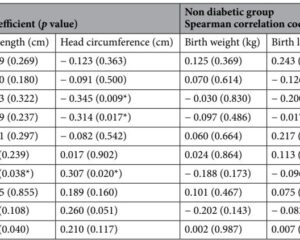Highlight
- In frail nursing home residents aged 80 and older with systolic blood pressure below 130 mm Hg, a step-down antihypertensive strategy did not reduce all-cause mortality compared to usual care.
- The median number of antihypertensive drugs was reduced significantly in the step-down group, resulting in a modest increase in systolic blood pressure (+4.1 mm Hg) without significant differences in adverse events.
- Clinical outcomes including cardiovascular events, falls, cognitive function, and quality of life were comparable between groups over a median follow-up of 38.4 months.
- The findings underscore the need for individualized antihypertensive therapy in frail older adults rather than routine medication reduction.
Study Background and Disease Burden
Hypertension is common among older adults and remains a major modifiable risk factor for cardiovascular disease and mortality. While antihypertensive therapy reduces cardiovascular events even in advanced age, the elderly population is heterogeneous, with frailty representing a distinct phenotype characterized by vulnerability to physiological stressors and increased morbidity and mortality. Nursing home residents frequently exhibit frailty and multimorbidity, and balancing antihypertensive treatment benefits with risks such as hypotension, falls, and drug side effects poses clinical challenges.
Despite observational data suggesting that intensive antihypertensive treatment and multiple medications may increase mortality among frail elderly patients, evidence from randomized controlled trials has been limited. This gap renders it difficult to formulate evidence-based guidelines on the optimal management of hypertension in this population, especially regarding the potential merits and harms of reducing or discontinuing antihypertensive drugs.
Study Design
The RETREAT-FRAIL study is a multicenter, open-label, randomized controlled trial conducted in France that evaluated the effect of progressive antihypertensive treatment reduction in nursing home residents aged 80 years or older. Eligible participants were prescribed two or more antihypertensive agents and had a systolic blood pressure (SBP) below 130 mm Hg, reflecting a well-controlled status.
Patients (n=1048) were randomized 1:1 to either:
– A step-down strategy involving protocol-driven, gradual withdrawal of antihypertensive medications tailored to individual tolerance (step-down group, n=528)
– Usual care without mandated medication reduction (usual-care group, n=520)
The median expected follow-up was 38.4 months, with the primary endpoint being all-cause mortality. Secondary endpoints encompassed the number of antihypertensive drugs at last trial visit, changes in systolic blood pressure during follow-up, rates of major adverse cardiovascular events (MACE), falls, fractures, cognitive function, activities of daily living, and adverse events.
Key Findings
Between baseline and the final trial visit, the mean number of antihypertensive agents decreased from 2.6±0.7 to 1.5±1.1 in the step-down group, compared with a more modest reduction from 2.5±0.7 to 2.0±1.1 in the usual-care group. This reflected a net between-group drug count difference of approximately 0.5 medications.
- Blood Pressure Changes: The adjusted mean between-group difference in systolic blood pressure change was +4.1 mm Hg (95% CI, 1.9 to 5.7 mm Hg) in the step-down group compared to usual care. Diastolic blood pressure also increased modestly by 1.8 mm Hg in the step-down group.
- Primary Outcome (All-Cause Mortality): Mortality rates were similar: 61.7% of the step-down group died compared with 60.2% in the usual-care group (adjusted hazard ratio 1.02; 95% CI, 0.86 to 1.21; P=0.78). This indicates no significant survival benefit or harm conferred by the reduction strategy.
- Secondary Outcomes: The step-down group had a nonsignificantly higher rate of major adverse cardiovascular events (19.3% vs. 17.3%) and noncardiovascular death (53.8% vs. 53.5%). Falls occurred in 50% of patients in both groups, with a nonsignificant trend toward fewer fractures in the step-down group (7.8% vs. 9.2%).
Standardized assessments showed no significant between-group differences regarding cognition, balance, activities of daily living, or quality of life scores.
- Safety: No differences in adverse event profiles were observed, indicating that medication reduction neither increased harm nor improved safety outcomes robustly.
Expert Commentary
These findings offer level 1 evidence regarding antihypertensive medication management in frail elderly nursing home residents—a population often excluded from hypertension trials. It refutes the observational data from the PARTAGE study suggesting that intensive polypharmacy is associated with increased mortality, demonstrating instead that step-wise medication reduction does not translate into mortality benefit.
Experts emphasize that while reducing antihypertensive burden may be safe, it does not confer improved outcomes, highlighting the complexity of therapeutic decision-making in frail older adults. This contrasts with prior data from trials such as OPTIMISE and DANTON, which indicated the feasibility of therapy reduction but did not demonstrate clear outcome improvements.
The 2024 European Society of Cardiology (ESC) hypertension guidelines recommend personalized treatment goals for frail elderly, endorsing a less aggressive, single-drug approach where appropriate, precisely owing to uncertain benefit-risk profiles. The RETREAT-FRAIL trial aligns with this cautious individualization approach.
Dr. Eugene Yang from the University of Washington notes that although hopes existed for mortality reduction through this strategy, the trial’s null findings fill a critical knowledge gap, offering reassurance regarding safety while underscoring the need for nuanced clinical judgment rather than protocolized de-escalation.
Conclusion
The RETREAT-FRAIL trial demonstrates that in frail nursing home residents aged 80 years and above with well-controlled blood pressure, progressive reduction of antihypertensive medications does not reduce all-cause mortality or major adverse outcomes compared to usual care. The modest increases in blood pressure seen with treatment step-down do not translate into significant differences in clinical events or functional measures.
These findings support a patient-centered approach to antihypertensive therapy in frail older adults, where treatment is tailored based on patient preferences, tolerability, comorbidities, and clinical context, rather than routine medication reduction aimed at presumed harm mitigation.
Future research should focus on identifying frailty subgroups most likely to benefit from therapy adjustment and clarifying optimal blood pressure targets balancing efficacy and safety. Meanwhile, clinicians should continue to prioritize comprehensive geriatric assessment and shared decision-making when managing hypertension in this vulnerable population.
References
Benetos A, Gautier S, Freminet A, Metz A, Labat C, Georgiopoulos I, Bertin-Hugault F, Beuscart JB, Hanon O, Karcher P, Manckoundia P, Novella JL, Diallo A, Vicaut E, Rossignol P; RETREAT-FRAIL Study Group. Reduction of Antihypertensive Treatment in Nursing Home Residents. N Engl J Med. 2025 Aug 29. doi: 10.1056/NEJMoa2508157. Epub ahead of print. PMID: 40879421.
Shepherd D, et al. OPTIMISE trial: optimizing antihypertensive medication in older adults. Lancet. 2018.
Benetos A, et al. PARTAGE study: association of antihypertensive treatment and mortality in very old frail patients. JAMA Intern Med. 2015.
Hughes S, et al. ESC Guidelines for the management of arterial hypertension. Eur Heart J. 2024.
Braga M, et al. DANTON trial: de-prescribing antihypertensives in patients with dementia. J Am Geriatr Soc. 2020.



